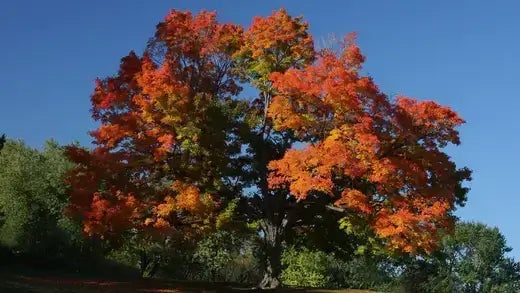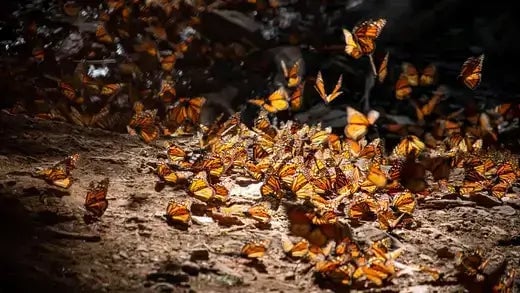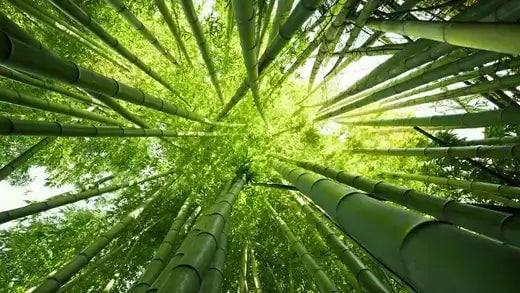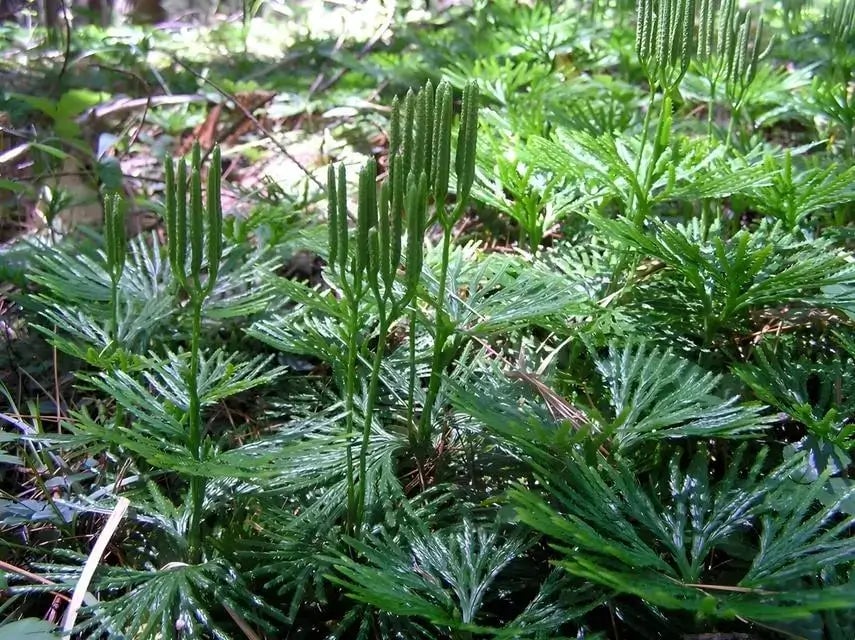The Bamboo Plant, often called "the plant of a thousand uses," is a remarkable member of the grass family, Poaceae.
While it may not seem as impressive as towering oaks or majestic redwoods, bamboo holds a unique position in the world of plants due to its incredible versatility and countless applications across various aspects of human life.
This comprehensive exploration will delve into the history, biology, cultivation, and extensive uses that make bamboo a valuable and sustainable resource. The Remarkable World of Bamboo Bamboo's Botanical Background To understand the true significance of bamboo, it's essential to start with its biology.
Bamboo is a fast-growing perennial plant
These culms are jointed, with segments often called "nodes" and "internodes." While there are many bamboo species, they share some common characteristics, such as rapid growth and remarkable strength. One of the most remarkable features of bamboo is its growth rate.
A Historical Perspective The use of bamboo dates back thousands of years, with a rich history deeply intertwined with the cultures of Asia, particularly China, Japan, and India. It's estimated that people have been using bamboo for more than 7,000 years.
Early civilizations recognized the plant's unique properties and began utilizing it for various purposes. Bamboo has been a symbol of strength, flexibility, and resilience in China for centuries. Ancient texts used it to construct buildings, bridges, and even as a writing surface.
The famous Chinese philosopher Confucius often used bamboo as a moral character and integrity metaphor, emphasizing its straightness, strength, and flexibility. In Japan, bamboo plays a crucial role in traditional arts and crafts. Bamboo baskets, mats, and tea utensils are just a few examples of how bamboo is intricately woven into Japanese culture.
Bamboo Is Very Fast Growing
Bamboo: A Sustainable Resource One of the most compelling reasons behind bamboo's popularity is its sustainability. Bamboo possesses several environmental advantages that make it an excellent alternative to traditional timber:
- Rapid Growth: As mentioned earlier, bamboo grows exceptionally quickly. This rapid growth rate ensures a readily available and replenishing supply of raw materials.
- Low Environmental Impact: Bamboo cultivation requires fewer resources, such as water and fertilizers, than other crops. Additionally, bamboo can thrive without the need for chemical pesticides or herbicides.
- Carbon Sequestration: Bamboo is an efficient carbon dioxide (CO2) absorber. It can sequester large amounts of CO2, contributing to climate change mitigation.
- Minimal Soil Erosion: The extensive root system of bamboo helps prevent soil erosion, making it an excellent choice for erosion control and watershed management.
- No Deforestation: Harvesting bamboo does not lead to deforestation because the plant regenerates from its root system, allowing for sustainable harvesting without damaging ecosystems.
- Biodiversity: Bamboo forests often provide habitats for various wildlife species, further enhancing their ecological value. These eco-friendly attributes have positioned bamboo as a key player worldwide in sustainable agriculture and forestry practices. Bamboo's role in reducing deforestation and its potential to combat climate change is increasingly recognized globally.
Versatile Uses of Bamboo Bamboo's reputation as the "plant of a thousand uses" is not an exaggeration. Its versatility spans numerous domains, from construction and furniture-making to culinary arts and textile production. Here, we explore some of the most prominent uses of bamboo:
- Construction: Bamboo has been a primary building material in many Asian countries for centuries. It is used to construct houses, bridges, scaffolding, and even skyscrapers. Bamboo's strength-to-weight ratio, combined with its flexibility, makes it an ideal choice for earthquake-resistant structures.
- Furniture and Decor: Bamboo is a popular choice for furniture and interior decor items such as chairs, tables, cabinets, and blinds. Its natural beauty and durability make it an attractive option for modern and eco-conscious interior design.
- Flooring: Bamboo flooring has become a sustainable alternative to traditional hardwood floors. It is known for its hardness, moisture resistance, and elegant appearance.
- Textiles: Bamboo fibers produce soft, breathable, and moisture-wicking materials. Bamboo fabric is eco-friendly for clothing, bed linens, towels, and more.
- Culinary Uses: Bamboo shoots are a culinary delicacy in many Asian cuisines. These tender, edible shoots are used in various dishes, from stir-fries to soups. Bamboo steamers are also commonly used in cooking.
- Paper and Writing: Ancient Chinese texts were often written on bamboo strips. While modern paper production has shifted to wood pulp, bamboo paper remains an environmentally friendly option.
- Musical Instruments: Bamboo is used to create musical instruments such as flutes, xylophones, and even saxophones. Its unique resonance properties contribute to the distinct sounds produced by these instruments.
- Crafts and Art: Bamboo's flexibility makes it an ideal material for crafting items like baskets, mats, and sculptures. In many cultures, bamboo art is considered a traditional craft.
- Gardening and Landscaping: Bamboo is used for various landscaping purposes, from privacy screens to ornamental plantings. It can also be employed in erosion control measures.
- Energy Production: In some regions, bamboo is a biomass fuel source for generating heat and electricity.
- Medicine: Bamboo has a long history of medicinal use in traditional Asian medicine. Different plant parts, such as leaves and sap, have been used to treat various ailments.
- Craft Beer and Bamboo Charcoal: In recent years, bamboo has entered the craft beer industry, with some breweries using bamboo vessels for fermentation.
- Transportation: Bamboo bicycles have gained attention as a sustainable mode of transportation. These bikes are not only environmentally friendly but also durable and lightweight. The list of bamboo's applications is nearly endless, and its adaptability inspires innovative uses across various industries. This adaptability also extends to different types of bamboo, as some species are more suitable for specific purposes due to their unique characteristics.
Bamboo Is Very Useful
Bamboo, often called "the plant of a thousand uses," is a remarkable and versatile resource with a rich history deeply rooted in various cultures worldwide. Its sustainable properties, rapid growth, and adaptability make it a valuable alternative to traditional timber sources and a promising solution to environmental challenges such as deforestation and climate change. From construction and furniture-making to textiles and culinary arts, bamboo finds its way into countless aspects of human life. Its economic potential is significant, offering opportunities for entrepreneurship, job creation, and rural development. However, it is crucial to approach bamboo cultivation and use with sustainability, addressing challenges such as invasive species, harvesting practices, and pest management.
As we look to a future where environmental sustainability is paramount, bamboo stands out as a symbol of resilience, adaptability, and responsible resource management. Its thousand uses are a testament to its versatility and a reminder of our responsibility to steward this remarkable plant wisely for future generations. Bamboo's story is not merely about its past and present but also about the future. It can help us build one that is both sustainable and harmonious with the natural world.
Read more

The Importance of the Sugar Maple Tree in Autumn Autumn, often called fall in North America Is a season of enchanting beauty marked by the transformation of lush green landscapes into a vibrant red...

The monarch butterfly (Danaus plexippus) is one of North America's most iconic and captivating butterflies. While it is beautiful and fascinating year-round, there is something genuinely magical ab...




